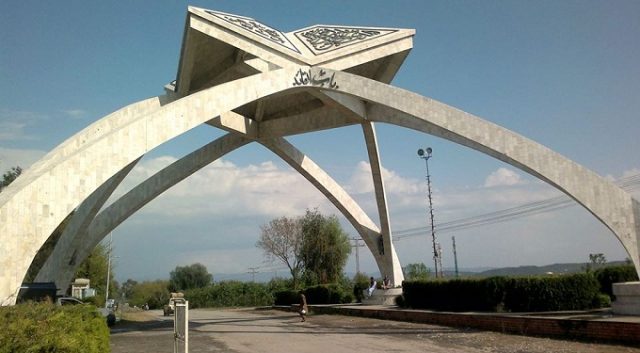ISLAMABAD: In a major leapfrog in facilitating the local universities and Research & Development (R&D) organisations to flourish scientific and industrial infrastructure, the federal government has approved an upgradation project costing Rs 275.752 million for Quaid-e-Azam University (QAU), Islamabad. The project would be completed in five years and would culminate by the year 2022 with a total cost of Rs 275.752 million. Out of the total cost, the government would release Rs 100 million this year.
The project for the upgradation of Silicon Strip Tracker and Muon System would be installed at the National Centre for Physics (NCP), QAU, and would be executed by Pakistan Atomic Energy Commission (PAEC) and National Centre for Physics (NCP).
The project would pave the way for helping local universities and other educational and research-oriented organisations to flower scientific and industrial infrastructure Pakistan in modern science and technology fields to help meet the international standards.
The project was approved in the recent CDWP meeting which will be executed jointly by PAEC and NCP and will be supervised by the members from PAEC and NCP. The coordinators for this project will be CERN-SESAME collaborations Director and EHEP Director respectively from PAEC and NCP and manpower will also be utilised from the establishment of PAEC and NCP.
The heads of the project will look into the execution of the project components relevant to their domains. The equipment will be purchased through inviting tenders from reputed firms through the press as per government or PAEC rules and regulations.
The technical evaluation committee of the concerned department will technically scrutinise the bids received from renders. All expenditure or procurement of works and services will be made through finance member, international editor and with the approval of the competent authority at NCP or PAEC.
The Pakistan Atomic Energy Commission and National Centre for Physics (NCP) will be responsible for operation and maintenance of the project. And the sources for financing this project will be Federal PSDP of PAEC.
As per documents available with Pakistan Today, the period of completion of the project will remain 60 months and June 2022 is the expected date of the completion of this project.
The planned network for the project includes Rs 100 million allocations from PSDP for (2017-2018). The sector strategy for the projected availability of the locally trained manpower as per needs of the industry will be ensured. The laboratories and equipment facilities of the R&D organisation and scientific institutions will be provided as well.
The encroachment of research and innovation in the areas of relevance for the economy and increasing the number of globally ranked Pakistani institutions will be managed.
Producing a trained and skilled workforce having a focus on innovation, value addition, capable of employing knowledge inputs for the rapid and sustainable agriculture development of Pakistan are also included in the planning framework.
The project will also remain in line with the vision 2025 with human resource development, ensuring competitiveness in the modern world, enhancing the quality of institutions and excellence in cutting-edge technologies are main ingredients of knowledge and technology-based development to achieve national goals.
The proposed project is also part of the perspective plan of the government for strengthening the R&D institutions of the country.
The project would also help local universities and R&D organisations to boost scientific and industrial infrastructure of the country. The successful execution of this project will not only improve the visibility of Pakistan on international forums but will also break the country’s scientific isolation.
The project will prove to be an important milestone in boosting the microelectronics industry in Pakistan. It will also provide an opportunity to train manpower, develop new multipurpose detectors as well.




